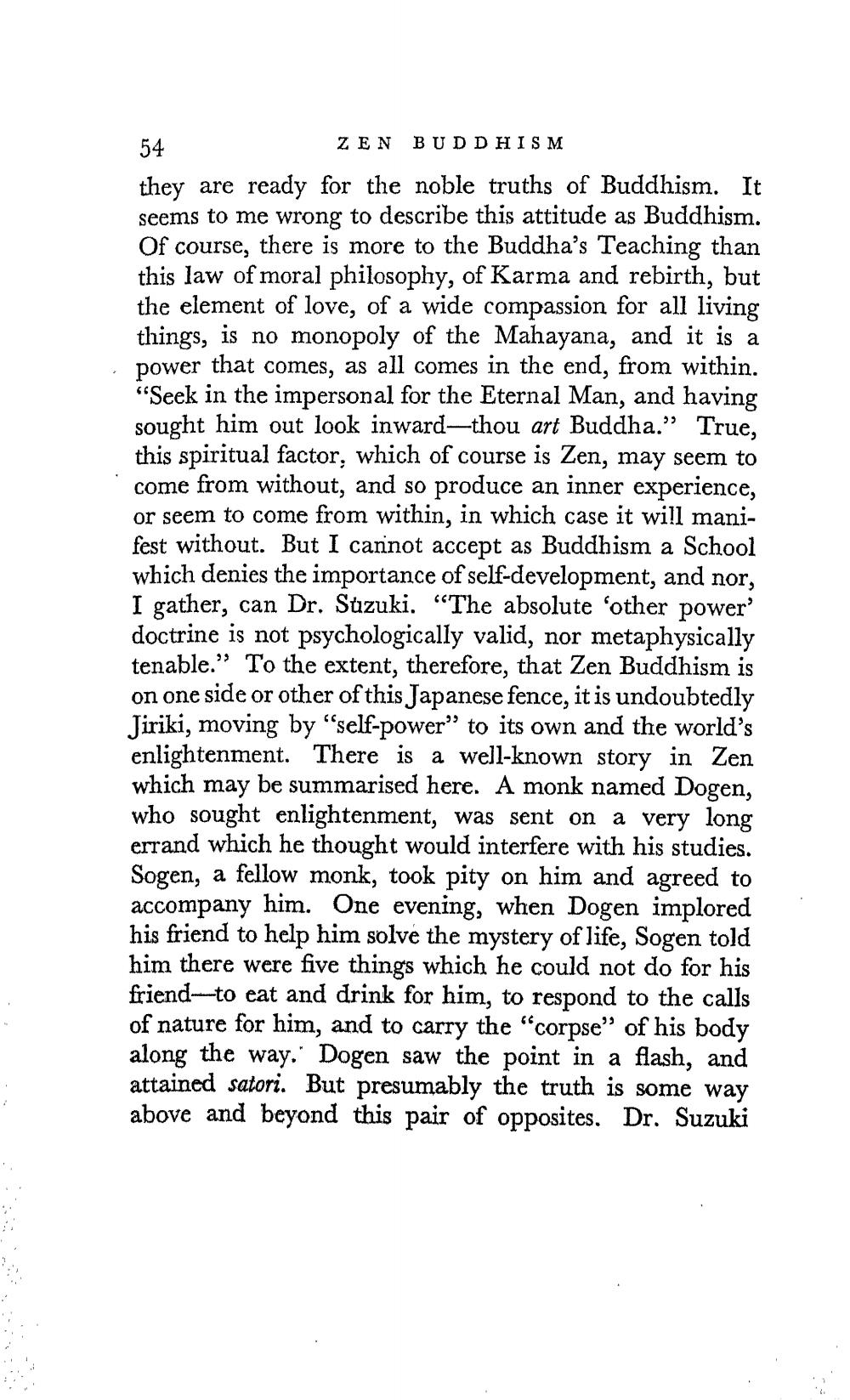________________
54
ZEN BUDDHISM they are ready for the noble truths of Buddhism. It seems to me wrong to describe this attitude as Buddhism. Of course, there is more to the Buddha's Teaching than this law of moral philosophy, of Karma and rebirth, but the element of love, of a wide compassion for all living things, is no monopoly of the Mahayana, and it is a power that comes, as all comes in the end, from within. "Seek in the impersonal for the Eternal Man, and having sought him out look inward—thou art Buddha." True, this spiritual factor, which of course is Zen, may seem to come from without, and so produce an inner experience, or seem to come from within, in which case it will manifest without. But I cannot accept as Buddhism a School which denies the importance of self-development, and nor, I gather, can Dr. Suzuki. “The absolute 'other power doctrine is not psychologically valid, nor metaphysically tenable.” To the extent, therefore, that Zen Buddhism is on one side or other of this Japanese fence, it is undoubtedly Jiriki, moving by "self-power” to its own and the world's enlightenment. There is a well-known story in Zen which may be summarised here. A monk named Dogen, who sought enlightenment, was sent on a very long errand which he thought would interfere with his studies. Sogen, a fellow monk, took pity on him and agreed to accompany him. One evening, when Dogen implored his friend to help him solve the mystery of life, Sogen told him there were five things which he could not do for his friend--to eat and drink for him, to respond to the calls of nature for him, and to carry the "corpse” of his body along the way. Dogen saw the point in a flash, and attained satori. But presumably the truth is some way above and beyond this pair of opposites. Dr. Suzuki




